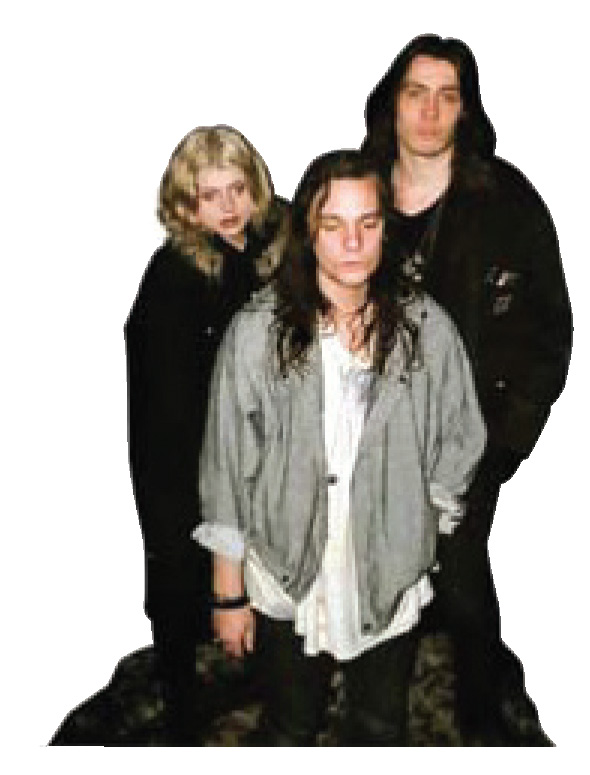I. A Booing in Texas
Traverse City, Michigan, has been anointed by such institutions as TripAdvisor and Livability one of the “top ten charming small towns,” “top ten foodie towns,” and “top ten fall foliage destinations,” and by AOL News as one of “America’s top ten beach towns.” (The town abuts Lake Michigan.)
For inhabitants of certain musical subcultures, Traverse City is better known as the place the band Salem calls its home, for reasons apparently having little to do with quaintness, the abundance of pepita-crusted tuna, and deciduous splendor, and possibly quite a bit more to do with remoteness and mystery-enhancement. This is a band trailed by David Lynchian stories of teenage prostitution and drug addiction, a band whose strung-out good looks threaten to bring back mid-’90s heroin chic, a band that has, even though the members exiled themselves to the Midwest and practice reticence and/or irreverence toward the media, garnered connected enthusiasts in the worlds of art and fashion, people such as Terence Koh, Ryan McGinley, and Liv Tyler. Riccardo Tisci of Givenchy played Salem’s music during the runway show of his spring/summer 2011 collection in Paris.
This is also a band that, despite the critical fandom that emerged around its first EP, Yes I Smoke Crack (2008)—a debut that validated a movement of dark, sludgy electro-pop subsequently anointed “witch house” or “drag” or “rape gaze”—was, according to many written accounts, booed off the stage at South by Southwest on March 20, 2010, during a performance that a Pitchfork reviewer later deemed could be “featured in the dictionary as the definition of ‘not giving a shit.’ ”
Just prior to the SXSW appearance, Salem performed at Glasslands, a small venue in Brooklyn, after which the New York Times wrote, “The performance was hollow at the core, aspirated, almost soothing in its inconsequence.” (Michael Stipe and Terence Koh were in the audience.)
And yet some would argue that Salem gives more of a shit than its fans are comfortable with them giving. One blogger—who runs the WNYU Witch House and Ambient Drone radio show, wrote, “A sense of humor in music means a willingness to experiment with new sounds at the expense of one’s reputation and above all—to not take oneself too seriously. Plenty of musicians in all genres are guilty of this, but Witch House suffers from a nasty case of pretentiousness as a result of being coddled and praised by the likes of Pitchfork and Nylon.”
Which perhaps only adds to Salem’s alluring (and frustrating) unclassifiability—an unclassifiability that extends to the witch house label they’ve been slapped with, and that some don’t think they deserve (about which, more later)....
You have reached your article limit
Sign up for a digital subscription and continue reading all new issues, plus our entire archives, for just $1.50/month.
Already a subscriber? Sign in





